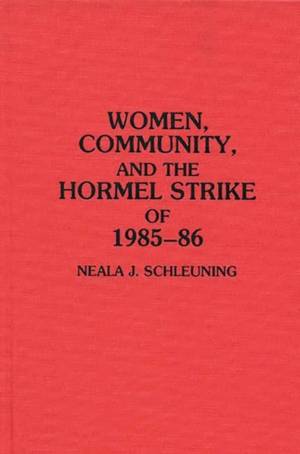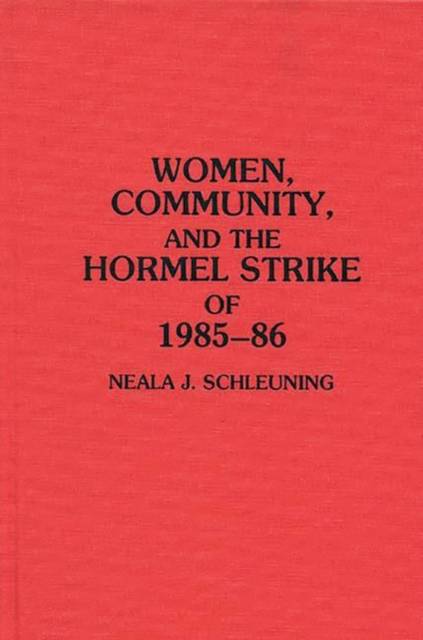
- Afhalen na 1 uur in een winkel met voorraad
- Gratis thuislevering in België vanaf € 30
- Ruim aanbod met 7 miljoen producten
- Afhalen na 1 uur in een winkel met voorraad
- Gratis thuislevering in België vanaf € 30
- Ruim aanbod met 7 miljoen producten
Zoeken
Omschrijving
The strike by Local P-9 against the Hormel Co. in 1985-86 marked a turning point in American labor history. The central role played in the strike by the Austin United Support Group brought the issues of economic justice and community survival to the forefront of the labor movement agenda. In response to isolation from their traditional communities, these women created a vital and successful strike culture that was characterized by cooperation, solidarity, and a variety of institutions to meet the economic, social, and spiritual needs of the 1,500 striking families. This work is important because it shows the strength of the women and their vision of economic justice, how deeply committed they remain to their ideals and their struggle, and how little the passage of time has diminished their anguish. This work is important also as a portrait of a typical midwestern company town where community life is colored strongly by economics.
Specificaties
Betrokkenen
- Auteur(s):
- Uitgeverij:
Inhoud
- Aantal bladzijden:
- 256
- Taal:
- Engels
- Reeks:
- Reeksnummer:
- nr. 137
Eigenschappen
- Productcode (EAN):
- 9780313289767
- Verschijningsdatum:
- 30/01/1994
- Uitvoering:
- Hardcover
- Formaat:
- Genaaid
- Afmetingen:
- 156 mm x 234 mm
- Gewicht:
- 530 g

Alleen bij Standaard Boekhandel
+ 322 punten op je klantenkaart van Standaard Boekhandel
Beoordelingen
We publiceren alleen reviews die voldoen aan de voorwaarden voor reviews. Bekijk onze voorwaarden voor reviews.











